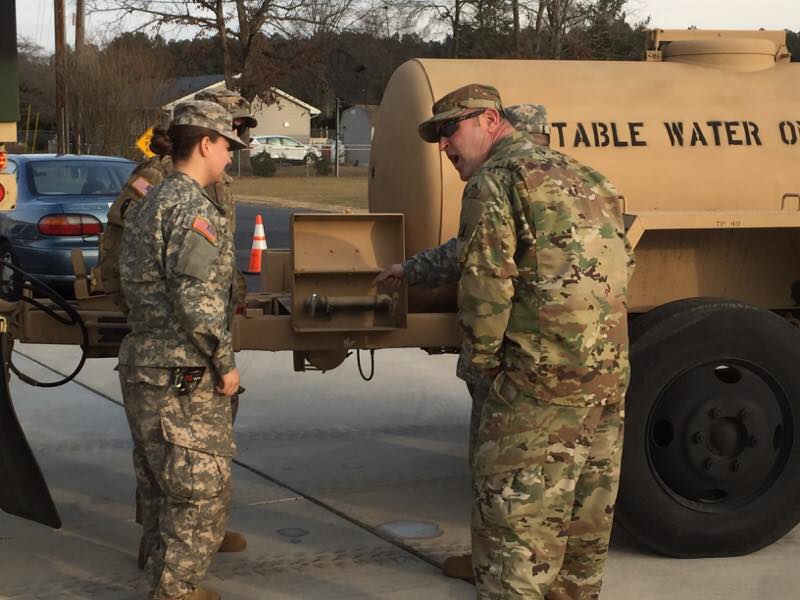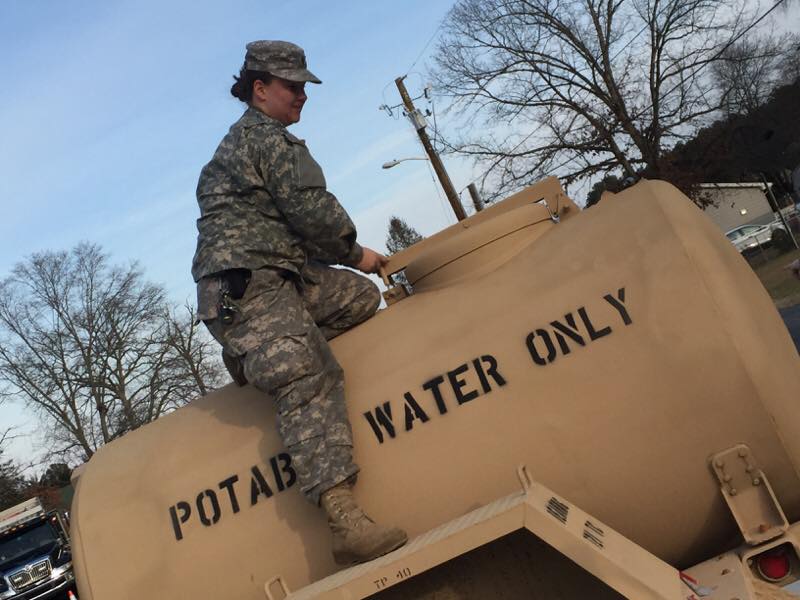[media-credit name=”Delaware National Guard” align=”aligncenter” width=”800″] [/media-credit]
[/media-credit]
Blades – The Department of Natural Resources and Environmental Control (DNREC) and the Delaware Division of Public Health (DPH) began providing bottled water Friday for drinking and cooking to residents of the Town of Blades in Sussex County, according to DNREC spokesman Michael Globetti.
Globetti said This response comes after all three of the town’s drinking water wells returned concentrations of perfluorinated compounds (PFCs) above the human health advisory level (70 parts per trillion) following recent sampling by DNREC at the request of the US Environmental Protection Agency.
DNREC worked with EPA in sampling the wells given their proximity to potential sources of PFCs from historical industrial processes in the area. Water from the Blades wells that were sampled is considered safe for use by residents for bathing and laundry. Bottled water was to be delivered Friday morning to the Blades Elementary School and four daycare centers in the area, and also was being provided by noon Friday to all Blades residents via delivery at the Blades Fire Hall.
[media-credit name=”Delaware National Guard” align=”aligncenter” width=”800″] [/media-credit]
[/media-credit]
On Thursday Blades Elementry issued the following statement on its website: “SSD: ALERT – Due to a water-related problem in the town of Blades, Blades Elementary School will be closed for students on Friday, February 9. All other schools will open as usual. Staff at Blades ES should report two hours late and not before 10 am.”
Alternative sources of drinking and cooking water will be provided until a permanent solution is in place, said Globetti. Water will be supplied to the Town of Blades by DNREC and DPH out of an abundance of caution until additional work can determine the extent of PFC contamination in the municipal wells.
[media-credit name=”Delaware National Guard” align=”aligncenter” width=”960″] [/media-credit]
[/media-credit]
Though PFCs are not regulated by the Safe Drinking Water Act, DPH is working with DNREC to minimize any potential health impacts to the community. Long-term exposure to perfluorooctanoic acid (PFOA) and perfluorooctane sulfonate (PFOS) can affect pregnant women and infants and cause cancer and liver and immune system impacts. While much research has been conducted on laboratory animals, the accompanying research related to humans is more limited.
On Friday morning Governor John Carney signed an Executive Order authorizing the Delaware National Guard to assist the Town of Blades with distributing water to residents impacted by high levels of perfluorinated compounds (PFCs) in municipal wells, according to a statement released by his office.
[media-credit name=”Delaware National Guard” align=”aligncenter” width=”960″] [/media-credit]
[/media-credit]
Officials said the Delaware National Guard has provided two, 400-gallon portable water tanks and coordinated troops to ensure 24-hour water distribution operations out of the Blades Fire Hall. Additionally, a 5,000-gallon water tanker is prepared and available for follow-up support.
[media-credit name=”Delaware National Guard” align=”aligncenter” width=”960″] [/media-credit]
[/media-credit]
The Department of Natural Resources and Environmental Control (DNREC) and the Delaware Division of Public Health (DPH) on Friday morning started to provide bottled water for drinking and cooking to residents of Blades.
Water will be supplied to the Town of Blades by DNREC, DPH, and the Delaware National Guard to ensure residents have access to potable water.

